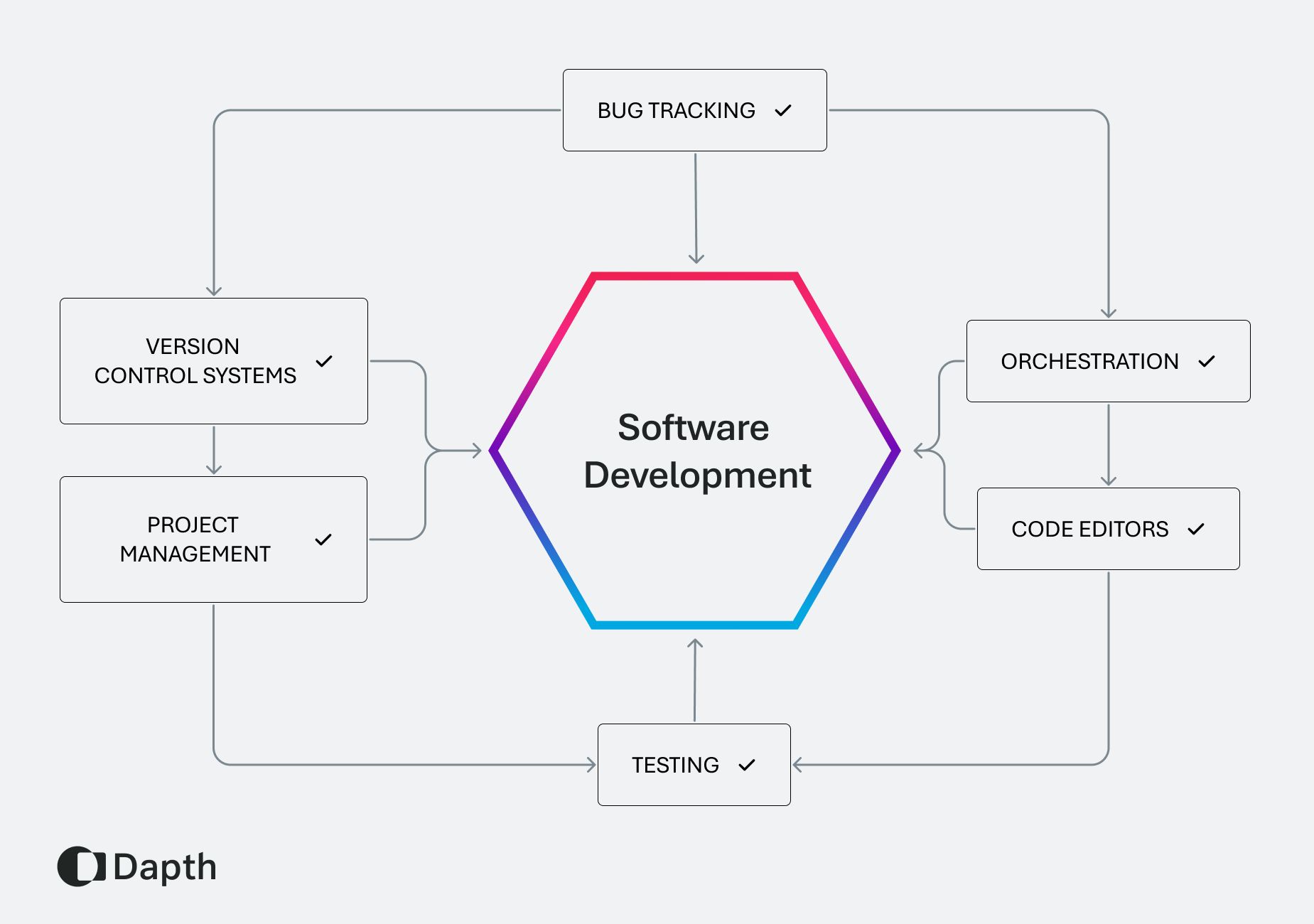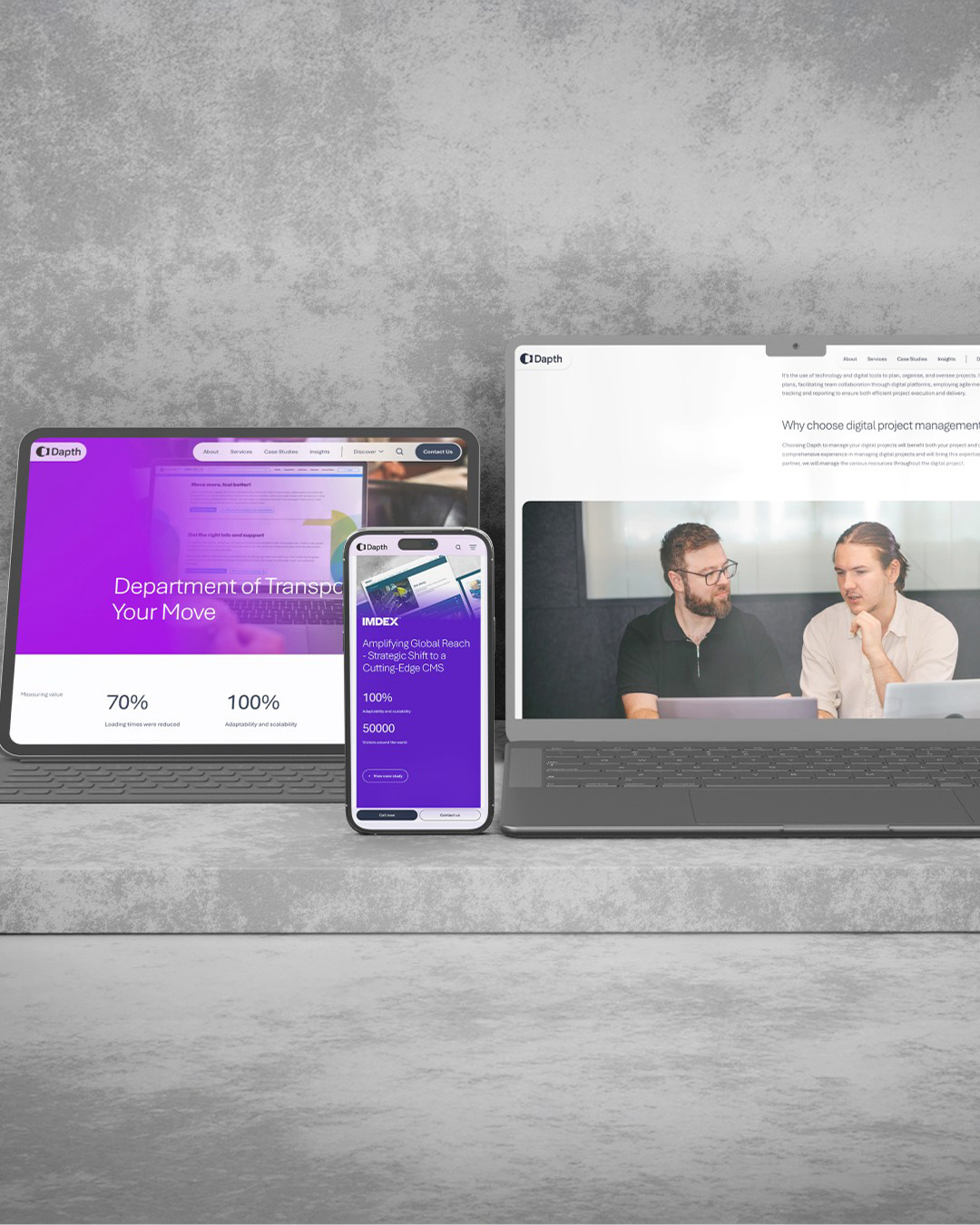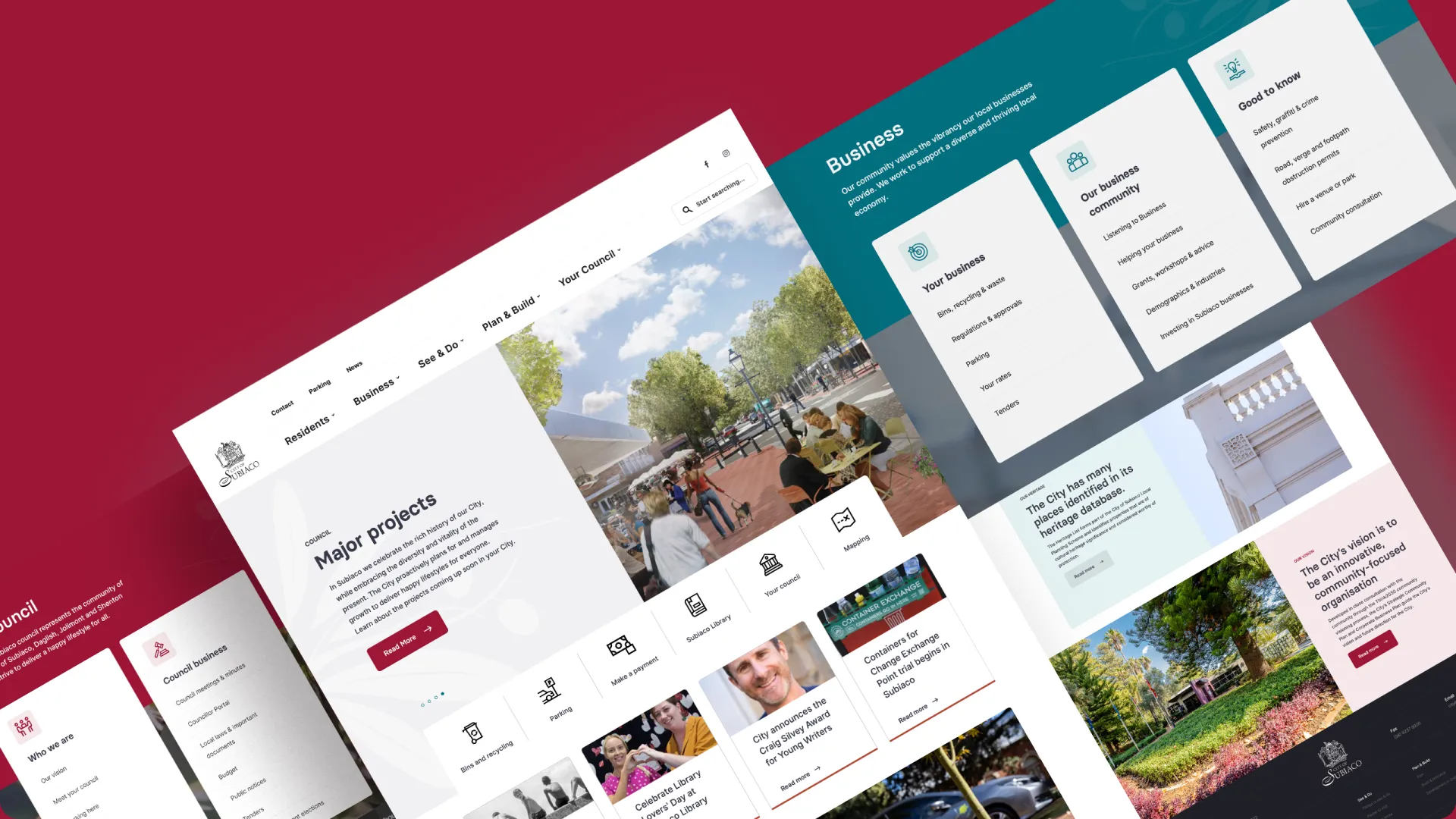
Software Engineering and Career Development
Enrolling in a software engineering course that includes practical, hands-on training will give you real-world experience by developing software for actual clients. Renowned academics will guide you through conducting a research project, giving your career a real edge.
You'll also have access to dedicated student clubs and societies in computer science and software engineering, enabling you to connect with like-minded individuals. These clubs organise multiple events throughout the year, such as hackathons, industry engagement nights, international competitions, and more (depending on the course provider).

Software engineering is a surprisingly multidisciplinary course - and completing the course can provide many transferable skills.
Undertaking a course in software engineering can significantly increase your job opportunities in various industries, such as IT, finance, government, education, and defence.

Learning Transferable Skills Beyond Software Engineering
A software engineering course is perfect for individuals who are both creative and analytical thinkers and who aspire to design and advance software to meet digital needs within various industries. The course teaches you how to create, write, and test software and systems that enhance the efficiencies of electronic devices and computers. Content will range from developing mobile apps to designing larger operating systems.
While many computer science and software courses are available, software engineering is beneficial as it provides a solid foundation in coding and programming and an overall understanding of the software development lifecycle
A Multidisciplinary Field
As a software engineer, you will rely on your coding and programming knowledge, a creative problem-solving approach, and strong planning skills to work as part of a team and deliver software that meets team goals. Studying software engineering is a multidisciplinary field that combines engineering, computer science, and data science - with many transferable skills.
Software engineering utilises fundamental engineering concepts like analysis, design, development processes, and integration with larger systems, giving you a "big picture" understanding. This critical field underpins technological advancements and addresses climate change and health. When studying software engineering, you can choose from various carefully chosen specialisations designed to take advantage of industry demands.

Exploring Software Engineering Courses
Choice abounds when selecting a software engineering course - ranging from traditional degrees to online options such as boot camps, short courses and intensive programs.
There are a variety of benefits and potential drawbacks to various course types for aspiring software developers, and ultimately, the choice of course depends on what works best for the individual. The benefits of software engineering courses include skill acquisition, flexibility, accessibility, and cost-effectiveness.
All course types offer opportunities to learn essential skills in software engineering. Online options provide flexibility in scheduling, allowing students to balance work and study. They make education accessible to a broader audience, regardless of geographical location, and are often more affordable than traditional on-campus options.
Key Drawbacks of Online Courses
However, there are also potential drawbacks. For instance, some online courses may not be accredited - so employers may not recognise them. Online courses can also vary widely in quality, making it essential to research and choose reputable programs. Shorter programs, such as boot camps, may provide a different depth of theoretical knowledge than a traditional degree program. Ultimately, the best option depends on individual preferences, career goals, and circumstances. When choosing the most appropriate course, aspiring software engineers should carefully consider the curriculum, accreditation, mode of delivery, and career goals.
Availability of Online Courses
Open online courses are available through platforms such as Coursera, Udemy, Udacity, and edX. Universities and industry professionals also offer online intensive courses on a variety of topics, ranging from introductory programming to specialised subjects. Coding boot camps provide immersive programs focused on practical skills like web development, data science, or UX/UI design. The benefits of these courses include short duration, hands-on experience, and often job placement assistance.
For example, a software engineering boot camp typically lasts 12 weeks. It is designed for both IT and non-IT professionals interested in transitioning careers into programming, software, web, and UI development. The program includes practical training, industry awards, and job placement support to help professionals secure jobs within the software industry.

Overview of Benefits and Drawbacks
Online Courses
Benefits:
Flexibility in scheduling.
Lower tuition fees.
Access to quality content.
Opportunity for practical skills.
Accessibility from anywhere.
Drawbacks:
Limited interaction.
Potential lack of accreditation.
Requires self-discipline.
Limited campus resources.
Varying quality among providers.
Traditional Degrees
Benefits:
Comprehensive education.
Faculty support and resources.
Accredited degrees.
Structured learning environment.
Potential for higher salary.
Drawbacks:
Higher tuition fees.
Less flexibility.
Limited accessibility.
Rigorous academic requirements.
Slower pace.
Ultimately, the best option depends on individual preferences, career goals, and circumstances. When choosing the most appropriate course, aspiring software engineers should carefully consider the curriculum, accreditation and mode of delivery.

Key Factors to Consider
Several key factors should be considered when enrolling in a software engineering course. These include your personal goals, time commitments, and preferred learning styles. Ask yourself how much time you can dedicate to learning each week and whether you prefer to self-pace your learning.
Some key questions to ask yourself include:
How much time can you allocate towards learning each week?
Do you prefer to self-pace your learning? Can you comfortably study at home in your current environment?
Why do you want to study, and how does this course fit in with your broader career goals?
What is the financial investment you're willing to make?
Some relevant keywords to help you in your search for courses include "software engineering courses", "software engineering diploma", and "software engineering courses online". It is essential to identify which category you fall under and to ask yourself why you want to study. Finally, be sure to prioritise the most critical factors when deciding.
There are different pathways to choose from based on preferences, goals, and finances. Traditional in-person programs offer a structured learning environment and networking opportunities, but they may be more expensive and less flexible. Online courses offer flexibility and affordability but require more self-discipline. Self-study or online boot camps may provide a more specialised curriculum and hands-on experience but may have different academic rigour and networking opportunities.
Career Opportunities
Completing a software engineering course can lead to diverse career opportunities and advancement opportunities. Formal education is highly relevant, providing credibility, foundational knowledge and specialised skills.
Key Skills Learned
Through a reputable software engineering course, you will learn to:
Utilise advanced technical software engineering skills in problem identification, analysis, planning, design, implementation, testing and maintenance of software solutions.
Develop a deep practical understanding of software engineering and extend this knowledge to more specialised areas such as web development, app development, big data, software architecture, networking and security.
Understand and implement mathematical foundations that underlie software engineering principles.
Apply knowledge of computing through research, experimentation and analysis, identifying needs, developing hypotheses, and applying methods to new settings.
Work effectively in a team, bringing leadership and accountability to solve real-world problems successfully.
Cost and Investment
When considering the financial aspects of pursuing a software engineering course, weighing the costs against the potential return on investment is crucial. Traditional four-year bachelor's degree programs, like those offered at institutions such as the University of Western Australia, can entail significant tuition fees, often totalling many thousands.
However, these programs provide a comprehensive education with access to faculty support, campus resources, and networking opportunities. Graduates with a degree in software engineering or computer science typically enjoy competitive salaries and ample career opportunities in the tech industry, which can justify the initial investment in education.
Overview of Online Options
Online courses, such as those offered by General Assembly, can be a more flexible and cost-effective option for software engineering students. Though the overall cost of tuition may still be significant, the ability to study online allows students to balance their studies with other commitments. In addition to this, alternative routes like coding bootcamps and self-paced online tutorials offer faster paths to gaining technical skills at a much lower cost than traditional programs. However, these alternatives may require more self-discipline and motivation, and the quality of education provided may vary. Ultimately, students should make their decision based on their financial situation, career goals, and preferred learning style.
For instance, in Australia, the indicative annual course fee for a four-year bachelor's degree in computer science/software engineering varies significantly across institutions. At the University of Western Australia (UWA), the fee is approximately $40k for a full-time four-year program. In contrast, General Assembly's total tuition cost is just over $16k.

The Takeaway
Contemplating whether to pursue a software engineering course should include careful consideration of key factors such as tuition fees, flexibility, and potential return on investment. Whilst traditional degree programs offer a recognised, comprehensive education, they also come with higher costs and time commitments.
Alternatively, online courses and alternative pathways like coding boot camps provide flexibility and affordability, albeit with varying quality and credibility. Before making a decision, it's essential for individuals to assess their personal circumstances, career aspirations, and preferred learning styles. By conducting thorough research and seeking guidance as needed, individuals can make a thoughtful, informed choice that aligns with their career goals.
Partnering with a seasoned software engineering agency can be invaluable for those seeking to apply their newfound skills in a professional setting. Dapth, a leading software development agency, offers various software consultant services, from custom software development to enterprise software solutions. Our team of Perth developers bring local expertise and a tailored approach to each project, ensuring your digital goals are met and exceeded. For those ready to take their software engineering journey to the next level, explore our Dapth careers page.
Frequently Asked Questions
The best courses for software engineering include accredited degree programs such as bachelor's and master's degrees in software engineering or computer science. Many reputable universities offer these courses, both on-campus and online. Additionally, coding boot camps and online courses focused on software engineering can provide practical skills and knowledge relevant to the field.
To become a software engineer, you typically need at least a bachelor's degree in software engineering, computer science, or a related field. However, some employers may accept equivalent experience or certifications in lieu of a degree. Advanced positions or specialised roles may require a master's degree or additional certifications in specific technologies or methodologies.
Yes, it's possible to become a software developer with a diploma, particularly if the diploma program provides comprehensive software engineering principles and practical skills training. However, having a bachelor's or master's degree in software engineering or a related field may enhance job prospects and opportunities for career advancement.
Yes - you can study software engineering online through various accredited institutions and online learning platforms. Online courses in software engineering cover a wide range of topics, including programming languages, software development methodologies, algorithms, and data structures. These courses offer flexibility in scheduling and accessibility from anywhere with an internet connection, making them a convenient option for individuals with work or family commitments.






_web.webp)

































_web.webp)
_web.webp)
_web.webp)





_web.webp)





































